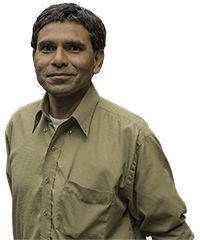Opinion
Mishra’s Mishmash: Why the Swedes can’t stop loving the Danes
Mrutyuanjai Mishra
This article is more than 5 years old.

Some old school rallying around the Scania flag (photo: Pixabay)
I have lived in both Sweden and Denmark. And sadly, over the past decade or so, I have observed how their political leaderships have unwittingly allowed their countries to drift apart, while their respective media do not seem to take much interest in affairs across the border.
However, on a very recent visit to Sweden following the eruption of the Coronavirus Crisis, I had the opportunity to converse with many Swedes, and it would appear optimism is growing at a grassroots level.
After all, just 28 km apart, Malmö and Copenhagen share a lot of history.
Closer than Stockholm
The principal of a school in Malmö summarised the apparent indifference regularly reported by the media by succinctly saying: “Samma sak”, which means two sides of the same story.
He was extremely calm and collected, listening attentively and politely to my bafflement at how the Swedish and the Danish approaches to the crisis have been entirely different.
I mentioned to him the two different immigration policies, and their different approaches to addressing multiculturalism, but he stuck to his point: “Look, we are sitting in Malmö, which was part of Denmark till 1658. We feel we are closer to the Danes than to Stockholm. We love Denmark, and I hope my students can soon visit the country again.”
The administrative head of a gymnasium in Lund went as far as applauding Denmark’s immigration policy, which has enabled it to keep things under control.
“I work in the Swedish gymnasium system, and I observe that many students who come as refugees to Sweden do not disclose their correct age,” she revealed.
“Adults end up attending my school with teenagers, and this creates challenges. I see why Danish scepticism is rational. I have a background in economics, and hence being rational and having both of your feet on the ground matters to me.”
“We love the Danes”
On my way back to Denmark, at Malmö’s main railway station, I met the Swedish manager of a small Swedish takeaway place called Lilla Husman, which literally means little traditional food. This name harmonises with the prevalent ‘janteloven’ in Denmark, which stipulates that you should never say you are better, big or clever.
“We love the Danes,” the manager told me. “We have been brothers for the longest time in history. We were once part of Denmark.”
This nicely sums up the optimistic stance of Swedes living in the Scania region, which for centuries has seen its borders regularly shifting.
Right now, as I write this article, the borders are closed. Controls have been tightened by both Denmark and Sweden. Every train arriving in Sweden from Denmark is halted, after which the passengers are thoroughly checked for valid passports and identity papers before the train is allowed to proceed further.
Returning to Denmark is a tougher experience, though. The police at Copenhagen Airport check if you have the necessary ‘anerkendelsesværdigt formål’ to enter Denmark from Sweden Malmö – an appropriate reason to leave and return to Denmark.
Frugal fraternity
After a short visit to Sweden, my understanding of Sweden has solidified. Their attitude to Denmark is that of an elder brother always ready to forgive, who knows that sometimes the younger brother can throw tantrums. Better times lie ahead!
As the economic crisis deepens, Sweden, Denmark, the Netherlands and Austria have decided to form a team, ‘The Frugal Four’, to avoid the French and German plan to drain money from their pockets.
The Swedes and the Danes are finally coming together!

About
Mrutyuanjai Mishra
As a regular contributor to the Times of India, the country’s largest newspaper, Mishra is often sought-after by Danish media and academia to provide expertise on Asian-related matters, human rights issues and democratisation. He has spent half his life in India and the other half in Denmark and Sweden.










































